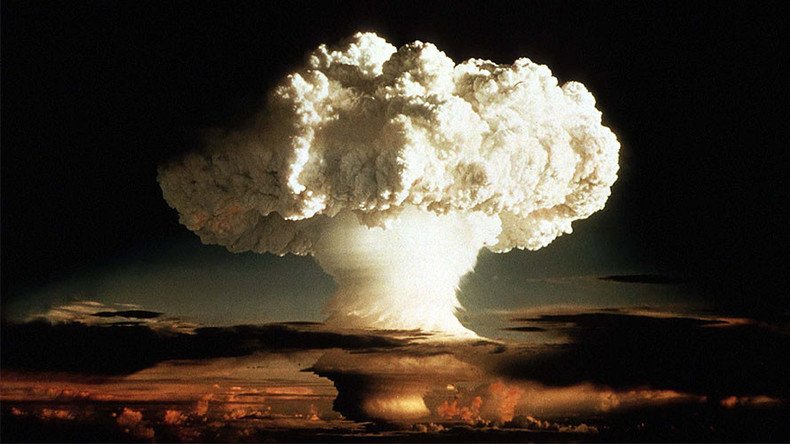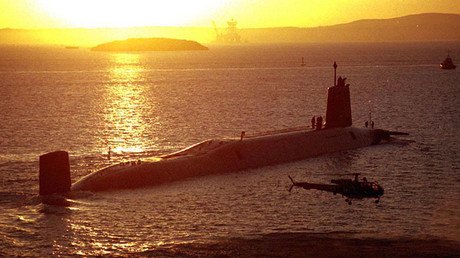Could Trump’s nuclear buildup talk see US bombs back in Britain?

With President-elect Donald Trump tweeting about building up the US’ nuclear arsenal, there is likely to be a renewed emphasis on Britain’s possible future role as a host for American nukes.
On Thursday, Trump took to his now customary policy dissemination device, Twitter, to argue that the US must increase and improve its nuclear warfare capabilities.
The United States must greatly strengthen and expand its nuclear capability until such time as the world comes to its senses regarding nukes
— Donald J. Trump (@realDonaldTrump) December 22, 2016
A day earlier, President Vladimir Putin had told his defense chiefs that recalibrating Russia’s own nuclear capacity would be an important priority for 2017.
Russia’s president said that “it’s not us who have been speeding up the arms race,” referring to a nuclear weapons treaty reached by the US and Soviet Union in 1972 that the George W. Bush administration pulled out of in 2002.
Meanwhile, the UK press reported that Putin has pledged to place nuclear capable missiles in the Baltic enclave of Kaliningrad due to fears about ongoing NATO encroachment.
Although the UK’s own at-sea Trident missiles are almost completely reliant on the US, a fact which undermines the weapon’s framing as an ‘independent deterrent,’ the last 110 conventional US warheads left Britain in 2008.
When Phillip Hammond was Britain’s foreign secretary in 2015, he conceded that, depending on developments, the UK could once again host America’s nukes.
The then-foreign secretary told one of the BBC’s flagship news shows presented by journalist Andrew Marr that the UK “would look at the case. We work extremely closely with the Americans.”
“That would be a decision that we would make together if that proposition was on the table. We would look at all the pros and the cons and come to a conclusion,” he added.
In the same interview, he was asked whether the UK would approve of the US having more missiles in Europe, in general.
“We have got to send a clear signal to Russia that we will not allow them to transgress our red lines,” he answered, but added that “at the same time, we have to recognize that the Russians do have a sense of being surrounded and under attack and we don’t want to make unnecessary provocations.”
Since Trump’s election win, concerns have been raised in British strategic circles about the tycoon’s apparent warmth towards Putin, with some wondering if this meant that the UK’s special relationship would have to be reexamined and could no longer be seen as a sacred cow.












